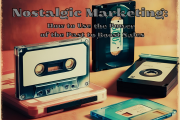Starting a Music Equipment Store: A Business Idea for Music Enthusiasts

💡 Want more business insights? Stay ahead of the curve with our exclusive updates!
👉 Join our Telegram channel for daily business ideas and expert tips.
👉 Follow us on Facebook to never miss a trend or update!
Don’t just read—connect, grow, and innovate with us today!
*If you love music and have a good understanding of musical instruments, why not turn your passion into a profitable business? Opening a music equipment store can be a rewarding venture, though it comes with its own set of challenges and specificities.**
Understanding the Market
The key to succeeding in this niche is expertise. Music store customers are often knowledgeable and discerning. If they sense incompetence, they’re likely to take their business elsewhere. Additionally, this market offers a wide range of products, from classical instruments to modern DJ equipment, sound systems, and lighting gear. While professional musicians may shop occasionally, your core audience is likely to include students and graduates of music schools.
Choosing the Right Space
our store’s size will depend on the volume of inventory and sales goals. Generally, stores under 100 square meters may appear less credible. Customers will expect to handle instruments, test sound quality, and get a feel for the product. Ample space ensures you can meet these needs while leaving room for growth.
Product Range

Start with a focused inventory based on your expertise or target market. For instance, specialize in instruments for specific music genres or diversify with sound and lighting equipment. Accessories like strings, picks, cables, and sheet music can also broaden your appeal and customer base.
Store Setup and Staff

Create an inviting atmosphere with a well-designed interior. Decorate with posters, artwork, or photographs of famous musicians to appeal to your creative clientele. Additionally, include a soundproof room for customers to test instruments without disturbing others.
Hire staff who are both knowledgeable and personable. Ideal candidates may include music students with experience playing multiple instruments. They should be able to explain features, demonstrate instruments, and provide personalized recommendations.
Marketing and Promotion

Focus your efforts on targeted advertising. Radio spots can reach music enthusiasts, while a professionally designed website can showcase your products and services. Social media and community events can also be powerful tools for building brand awareness and engaging with customers.
Additional Tips for Success
- ffer customization, repairs, and tuning services for added value.
- Stock educational materials and instructional guides to attract music students.
- Stay informed about industry trends to keep your inventory relevant.
Conclusion
Starting a music equipment store requires a blend of passion, expertise, and attention to customer needs. By curating a strong inventory, hiring knowledgeable staff, and creating a welcoming environment, you can establish a business that resonates with your audience and grows steadily over time.
Did you enjoy this article? Share it with your friends and spark ideas for music lovers and entrepreneurs alike!
💡 Want more business insights? Stay ahead of the curve with our exclusive updates!
👉 Join our Telegram channel for daily business ideas and expert tips.
👉 Follow us on Facebook to never miss a trend or update!
Don’t just read—connect, grow, and innovate with us today!





































.jpeg)













Note: Comments are being moderated and may take a while to appear. There is no need to resubmit your comment.